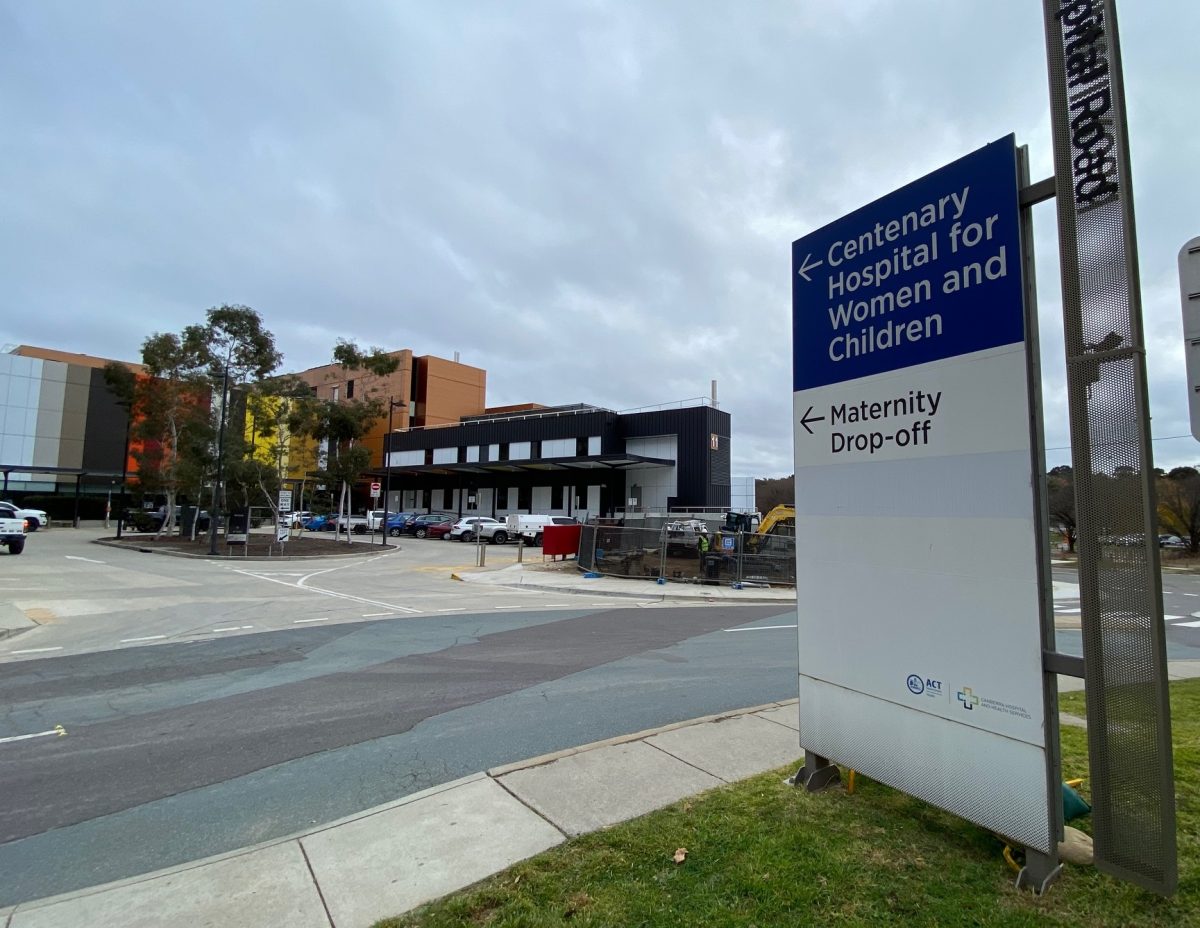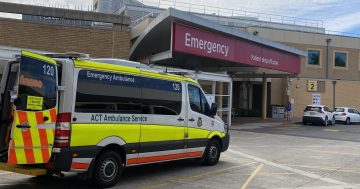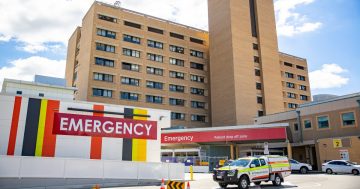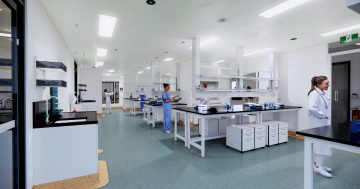
A RANZCOG draft report has identified repeated failures by the Centenary Women and Children’s Hospital for trainee doctors in the obstetrics and gynaecology unit. Photo: Claire Fenwicke.
Canberra Hospital’s failure to provide a safe and educational environment for trainee doctors in one of its departments has raised concerns about whether patient care for expectant parents is also up to scratch.
Meanwhile, it’s been revealed yet another unit has had its training accreditation pulled – the term in plastic surgery.
A draft report from the Royal Australian and New Zealand College of Obstetrics and Gynaecologists (RANZCOG) identified multiple concerns around the training, education and responsibilities of trainees in the obstetrics and gynaecology department.
This included a “blame culture” of bullying within mortality and morbidity meetings, placing an “inappropriate burden” on trainees or unaccredited registrars, and not giving trainees time to pursue their education. It also said opportunities for operating were “severely limited”.
“The workplace culture has deteriorated to the point where it did not appear to be one which prioritised training,” the report stated.
Concerns were raised that, due to staffing pressures and burnout, there were instances in antenatal clinics where junior trainees were supervising senior resident medical officers (SRMOs).
“As a consequence, there were concerns that patients are not well managed given time and staffing pressures,” it stated.
Overall, the report appeared to express disappointment in the training opportunities within the department, stating the hospital had been “repeatedly made aware” of areas that were lacking.
The report suggested this was due to a combination of staffing shortages, minimal workforce planning and poor communication.
“The culture was described as toxic on several occasions, with the pressure of increased workloads leading to frustration being expressed in ways that made others feel unsafe,” it stated.
“Decreasing consultant numbers have severely impacted the workplace culture, with those who remain overworked and in some cases burnt out.
“This has allowed poor behaviour and attitudes to fester, and acts as a barrier to further recruitment which would otherwise help in addressing some of the issues.”
Specialist Colleges such as RANZCOG accredit registrar training programs that teach doctors who wish to qualify in a specific subspeciality.
In the wake of the draft report, and the hospital previously requesting the training accreditation of its Fetal Medicine Unit to be suspended, Region asked if any other departments had had the same thing occur.
A Canberra Health Services (CHS) spokesperson confirmed this was the case.
“Canberra Region Medical Education Council (CRMEC) accredits terms which junior doctors undertake after finishing university, in order to achieve their general medical registration,” they said.
“The accreditation for the term in Plastic Surgery has been revoked and work is underway to address workforce concerns.
“No junior doctor has been or will be disadvantaged by this as they have been reallocated to other terms.”
Meanwhile, the hospital has also been notified a “mid-cycle review” will take place into the accreditation of the training in its Child at Risk Unit.
Canberra Liberals leader Elizabeth Lee said the RANZCOG draft report showed the unit was at “breaking point”, and accused the government of trying to rebrand “serious failures” as mere “challenges”.
“In 2010 and 2014, RANZCOG made similar scathing comments about the Obstetrics and Gynaecology Unit, yet almost 13 years later it would seem the Canberra Hospital has been handed a worse report, despite the government saying it would fix the issues,” she said.
“If the challenges have been known, then why are serious management, cultural and governance issues continuously noted in these reports?”
Ms Lee questioned if the college couldn’t trust the ACT Health system with trainees, then how could expectant parents do the same.
“This is a tertiary hospital that is in danger of not being accredited – that speaks volumes, not only about the standard of care that patients are receiving but also about the health and wellbeing of the trainees themselves, consultants and trainers,” she said.
“It also raises alarm bells about the long-term future, because if Canberra Hospital is unable to train these trainees … [how can we] retain them?”
Both Health Minister Rachel Stephen-Smith and CHS acknowledged more work needed to be done to better support trainees and to create a more positive and collaborative team environment.
It was also stressed that people looking to give birth at the hospital would receive appropriate care.
“We are confident the review into training accreditation does not impact on the safety and quality of patient care, thanks to the ongoing hard work of our obstetrics and gynaecology team,” a CHS spokesperson said.
“The busy clinical workload of our clinicians has meant that there is less time to dedicate to ongoing training of our obstetrics and gynaecology trainees. As a teaching and learning hospital, we know this is not acceptable.”
While Ms Stephen-Smith said the workforce shortages and culture challenges being faced by the hospital weren’t unique to the Territory.
“A number of obstetrics and gynaecology units across the country have faced challenges around their training environments and accreditation over the last year or so,” she said.
“[However] we’ve certainly heard the message that what we’ve done to date hasn’t been enough, and CHS is recommitting itself to ensuring that the voices of those staff are heard and those issues are addressed.”
RANZCOG has granted the Obstetrics and Gynaecology Unit provisional accreditation for six months. The hospital has to provide evidence of workforce planning by September and a progress report by December.
Ms Stephen-Smith said she didn’t expect the unit would lose its training accreditation.
RANZCOG hasn’t released the final report.


















